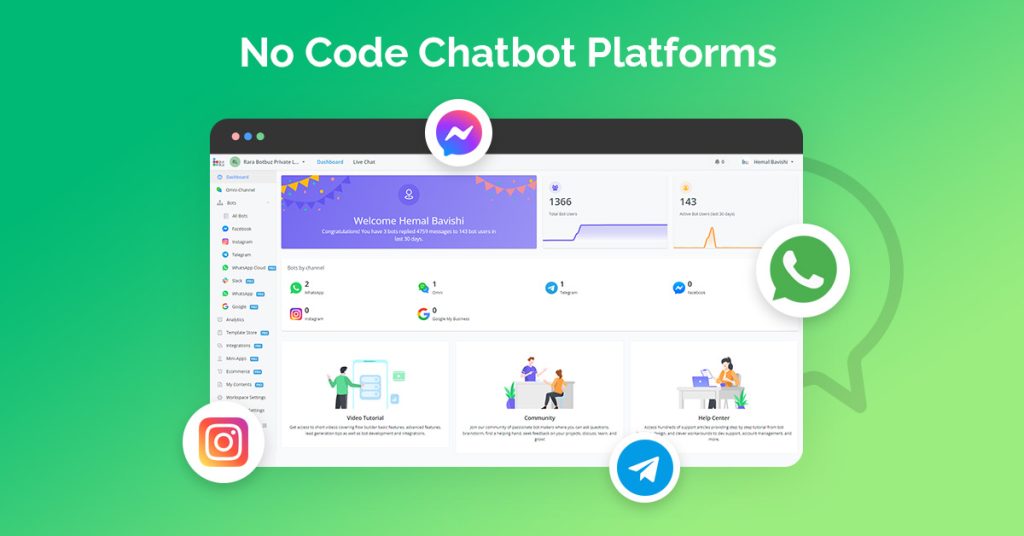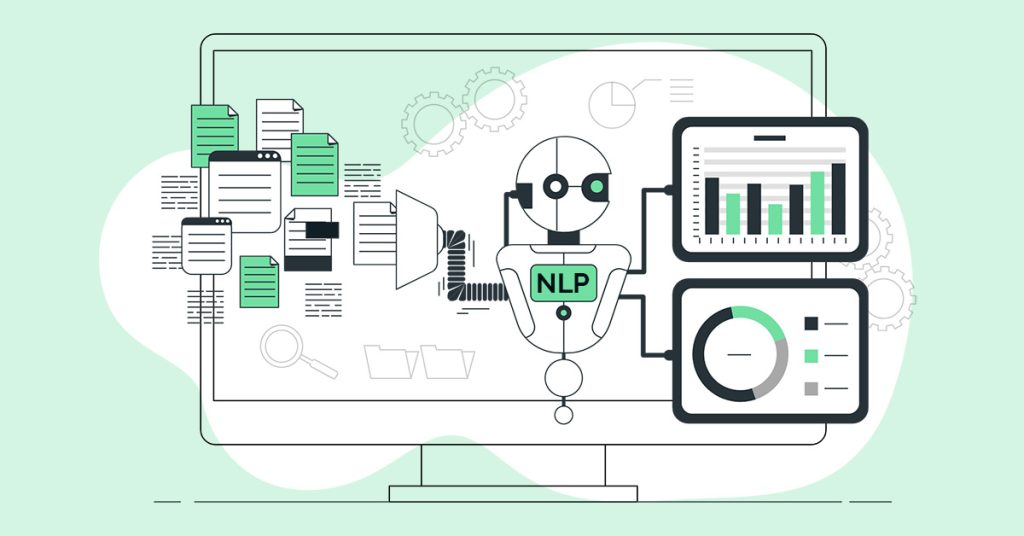The Power of Automation for Small Businesses :
In today’s competitive landscape, small businesses need every edge they can get. Automation has emerged as a game-changer. It is helping businesses of all sizes to streamline operations, boost efficiency. Thus, ultimately achieve success.
This doesn’t just apply to large corporations with vast resources. Automation tools designed specifically for small businesses are readily available and affordable. By strategically implementing these tools, you can free up valuable time and resources. Thus, allowing you to focus on what truly matters – growing your business.

Why Automation Matters for Small Businesses ?
In the fast-paced world of business, every minute counts. For small businesses, where resources are often limited, automation is a powerful tool. It can level the playing field and unlock significant advantages. Here’s how :
Streamlined Processes and Improved Efficiency : Imagine freeing up your employees from repetitive tasks like data entry, scheduling appointments, or sending follow-up emails. Automation tools can handle these mundane chores flawlessly. It allows your team to focus on higher-level activities that require creativity, problem-solving, and strategic thinking. This streamlined approach leads to a smoother workflow and a more efficient operation.
Reduced Costs and Increased Productivity : Automation doesn’t just save time, it saves money. By automating repetitive tasks, you can minimize human error, which often leads to rework and wasted resources. Additionally, automated processes typically operate 24/7. It maximizes your output & boosts overall productivity. Every dollar saved and every minute gained translates into a significant competitive advantage for your small business.
Competing with Larger Enterprises : Large corporations often have the luxury of dedicated teams and hefty budgets to handle various tasks. Automation empowers small businesses to bridge this gap. By automating routine functions, you can compete on a more level playing field. Imagine offering 24/7 customer support through a chatbot, automating personalized marketing campaigns, or streamlining your inventory management system. All thanks to automation tools that are readily available and affordable for small businesses.
The Rise of Automation in Small Businesses :
The landscape of automation for small businesses is rapidly evolving. Here’s a breakdown of the current state :
Growing Adoption : Studies show a significant increase in automation adoption among small businesses. Reports indicate that a substantial portion (figures can vary depending on the source) of small businesses have already implemented at least some level of automation, with a growing number actively exploring its potential.
Challenges and Barriers : Despite the benefits, there are still hurdles to overcome. Common challenges include :
Limited Resources : Budgetary constraints and a lack of in-house expertise can make initial implementation daunting for some small businesses.
Fear of Job Loss : Concerns about automation replacing jobs can create resistance to adoption. However, the focus should be on tasks, not people. Automation frees up employees for more strategic roles.
Choosing the Right Tools : With a wide range of automation tools available, selecting the right ones for your specific needs can be overwhelming.
8 Top Small Business Automation Strategies for Sales and Support :
1. Botbuz AI Chatbots for Proactive Lead Generation
In today’s digital age, website visitors expect immediate attention. This is where Botbuz AI chatbots come in. These intelligent chat programs can act as virtual salespeople. It engages with website visitors 24/7 and captures valuable leads.
Here’s how Botbuz AI chatbots can supercharge your lead generation :
Proactive Engagement : Unlike static web forms, chatbots can initiate conversations with website visitors. It asks qualifying questions and gathers valuable information. This proactive approach allows you to connect with potential customers the moment they show interest. Thus, increasing lead capture rates.
Lead Qualification and Nurturing : Botbuz AI chatbots can be programmed to ask specific questions to understand a visitor’s needs & interests. This allows for initial lead qualification. It helps you to identify high-potential leads that deserve further attention from your sales team. Chatbots can also nurture leads by providing relevant information, scheduling demos, or offering free trials. Thus, keeping them engaged throughout the sales funnel.
2. Website Chat : Real-Time Support at Your Fingertips
In today’s fast-paced world, customers expect instant gratification. When they have a question while browsing your website, they don’t want to wait for an email response or struggle to find the answer buried in an FAQ section. This is where website chat shines.
Website chat allows you to offer real-time support to potential and existing customers directly on your website. A strategically implemented chat solution can significantly enhance the customer experience by providing several key benefits :
Increased Conversions : Website visitors with questions are more likely to convert into paying customers if they receive prompt and helpful assistance. A well-trained chat representative can address their concerns, answer product queries, and guide them through the buying process, ultimately leading to increased sales.
Improved Customer Satisfaction : Prompt and personalized assistance through chat demonstrates that you care about your customers and their needs. This fosters trust and loyalty, leading to higher customer satisfaction.
Personalized Support : Unlike static FAQs, website chat allows for two-way communication. Chat representatives can personalize their responses based on the individual customer’s needs. Thus, providing a more relevant and helpful experience.
Reduced Support Costs : While offering 24/7 live chat support may not be feasible for all small businesses, chatbots can offer a cost-effective solution for handling basic inquiries outside of business hours. Additionally, by addressing customer concerns promptly through chat, you can potentially reduce the need for more expensive support channels like phone calls.
3. Responsive Contact Forms and FAQs to Reduce Tickets :
Customer support inquiries can quickly overwhelm a small business’s resources. Fortunately, automation can help deflect a significant portion of these inquiries. It frees up your team to focus on more complex issues. Here’s how responsive contact forms and FAQs can be powerful tools :
Reduced Ticket Volume : By providing a user-friendly and accessible contact form, you empower customers to reach out with their questions or concerns directly. Well-designed forms can capture essential information upfront. It allows your team to address inquiries efficiently. Additionally, a comprehensive FAQ section acts as a self-service library. It enables customers to find answers to common questions without needing to contact support directly. This significantly reduces the number of tickets your team needs to handle.
Optimizing for Self-Service :
Contact Form Simplicity : Keep your contact form concise and easy to navigate. Focus on capturing essential information like name, email address, and the nature of the inquiry. Offer clear instructions and use drop-down menus or radio buttons whenever possible to streamline the process.
Comprehensive FAQ Section : Your FAQ section should be a treasure trove of easily searchable information. Anticipate common customer questions and provide clear, concise, and up-to-date answers. Categorize questions logically and utilize search functionality to make navigation easy.
Mobile-Friendly Design : Ensure both your contact form and FAQ section are optimized for mobile devices. With the rise of mobile browsing, a significant portion of your customers will likely be accessing your website on their smartphones or tablets.
4) WhatsApp Campaigns and Newsletters for Product Launches :
Reaching your target audience directly through their preferred communication channels is crucial. This is where WhatsApp marketing and email newsletters come into play. It offers powerful tools for driving product awareness and sales, especially during product launches.
Boosting Awareness : Targeted WhatsApp Campaigns : WhatsApp boasts high engagement rates, making it ideal for targeted product launch campaigns. Segment your customer base and send personalized messages highlighting new features, benefits, and special launch offers. Include eye-catching product images or short videos to spark interest.
Automated Newsletter Sequences : Newsletters allow you to showcase your product launch in detail. Craft an engaging email series leading up to the launch date. These emails can tease new features, share behind-the-scenes glimpses, or offer early access opportunities.
Driving Sales : Exclusive WhatsApp Offers : Within your WhatsApp campaign, incentivize purchases with limited-time discounts or early-bird promotions exclusive to your WhatsApp subscribers.
Call to Action in Newsletters : Clearly communicate the call to action (CTA) in your newsletters. Direct readers to your website for pre-orders, exclusive launch bundles, or special launch events.
5) Email Newsletters and Automated Follow-Ups :
Email remains a powerful tool for communication and engagement. Here’s how automation can supercharge your email marketing efforts :
Stay Connected with Customers : Regular email newsletters are a fantastic way to keep your customers informed about new products, promotions, and industry updates. Automated newsletters free you from the time-consuming task of crafting and sending individual emails. Thus, allowing you to stay connected with your audience consistently.
Nurturing Leads and Retaining Customers : Automated follow-up emails are game-changers for sales and customer support. Imagine sending personalized emails to potential customers who have shown interest in your product but haven’t converted yet. These follow-ups can provide valuable information. It even addresses concerns, and gently nudges them towards a purchase.
Similarly, automated emails can be sent to existing customers with post-purchase thank you messages, special offers, or helpful troubleshooting tips. These automated interactions nurture relationships, build trust and encourage repeat business.
6) Ratings and Feedback : Fueling Continuous Improvement
Customer feedback is a goldmine of valuable insights. By leveraging automation, you can easily collect and analyze ratings and reviews. Thus, helping you identify areas for improvement and ensure customer satisfaction.
The Value of Feedback : Customer feedback provides a window into your strengths and weaknesses from the perspective of the people who matter most. Positive reviews highlight areas where you’re excelling. While negative feedback reveals opportunities for improvement. By actively seeking and analyzing this information, you can continuously refine your sales and support processes.
Automated Feedback Collection : Gone are the days of relying solely on manual surveys or chance encounters. Automation tools can send out automated feedback requests following sales interactions or support tickets. These can be simple surveys prompting customers to rate their experience or leave a written review.
Analysis and Action : The key to success lies not just in collecting feedback, but in acting upon it. Utilize automation tools to categorize and analyze customer reviews. Identify common themes and areas where customers consistently express satisfaction or dissatisfaction. Use this data to make informed decisions about improving your sales & support processes.
7) Loyalty Rewards to Retain Star Customers :
Keeping your existing customers happy is crucial for any small business. A well-designed loyalty rewards program can be a powerful tool for automation and customer retention.
Why Automate Loyalty Rewards ?
Incentivize Repeat Business : Loyalty programs encourage customers to return by rewarding them for their purchases. Automated programs track points, send reminders, and reward customers seamlessly. It increases their engagement with your brand.
Streamline Customer Retention : Automation eliminates the need for manual tracking and reward distribution. Customers can easily access their points and redeem rewards through a user-friendly platform.
8) Implementing Robotic Process Automation (RPA) :
What is RPA ? Robotic Process Automation (RPA) utilizes software robots to automate highly repetitive, rule-based tasks. Think of it as a digital assistant that can mimic human actions on your computer system.
Benefits for Small Businesses :
For small businesses with limited resources, RPA offers a cost-effective way to automate tasks that would otherwise burden your team. RPA can improve accuracy, reduce errors & free up valuable time for your employees to focus on more strategic initiatives.
Examples of Tasks to Automate with RPA :
- Data entry from emails or forms into your CRM system
- Generating invoices and sending them to customers
- Sending automated follow-up emails to leads
- Updating customer records based on interactions

Thrive in the Age of Automation with Botbuz
In today’s dynamic business landscape, small businesses need every edge they can get. Automation has emerged as a game-changer. Botubz chatbot automation stands as a powerful tool in your arsenal.
By implementing Botubz, you can automate repetitive tasks, streamline communication, and provide exceptional customer service around the clock. This translates into increased efficiency, reduced costs, and a more productive workforce. These all are the essential ingredients for success.
Automation isn’t about replacing human interaction. It’s about empowering your team to focus on what matters most – building relationships and exceeding customer expectations. With Botubz by your side, you’ll be well on your way to leveling the playing field. Thus, competing effectively with larger enterprises, and achieving sustainable growth in the age of automation.
Don’t wait to embrace the future of customer service. Start your free trial of Botubz today and unlock the true potential of your small business!




